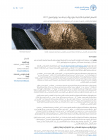Click to expand Image
Exterior of the COP26 climate conference in Glasgow, with a banner reading: “Welcome to the UN Climate Change Conference UK 2021.”
© 2021 Human Rights Watch
“Disabled people won’t survive climate change if it isn’t in the plan for us to do so. And you can’t plan without us.”
These were the words of Gabrielle Peters, a disabled policy analyst from Canada, during a side event at the United Nations climate summit (COP26) in Glasgow today that put the spotlight on the needs of people with disabilities during climate disasters.
People with disabilities comprise an estimated 15 percent of the global population, and are at increased risk of adverse climate impacts – including threats to their rights to the highest attainable standard of health, food, water, sanitation, and an adequate standard of living. Yet, for many, government support has been utterly lacking so far.
During an extreme and foreseeable heatwave this summer in the Canadian province of British Columbia, where Peters lives, she was, she felt, “denied the tools and means” to survive, she told the audience. And fellow disability rights activist Paul Caune recalled how he nearly went to the hospital because of the excruciating pain he was experiencing during the British Columbia heat dome but didn’t trust in available government services. “I felt like the whole system was collapsing around me.”
Meaningful consultation of people with disabilities is essential for governments to adequately prepare for the worst effects of climate change and protect their rights – a commitment political leaders from around the globe made under the Paris Agreement. The UN Convention on the Rights of Persons with Disabilities also specifically obliges states to ensure the protection and safety of persons with disabilities in situations of risk, among a broad range of other human rights. Governments need to include people with disabilities in planning as they monitor and prepare for foreseeable climate risks and ensure that targeted and adequate support is available and accessible to them.
Climate change mitigation and adaptation policies should reliably support people with disabilities. And climate action at all levels should draw on the knowledge and insights of people with disabilities. “It’s about us asserting our knowledge and right to a leadership role in this,” Peters told my colleague after the side event. “Both because we are disproportionately impacted and because we have insights that would not only save us but save everyone else.”



